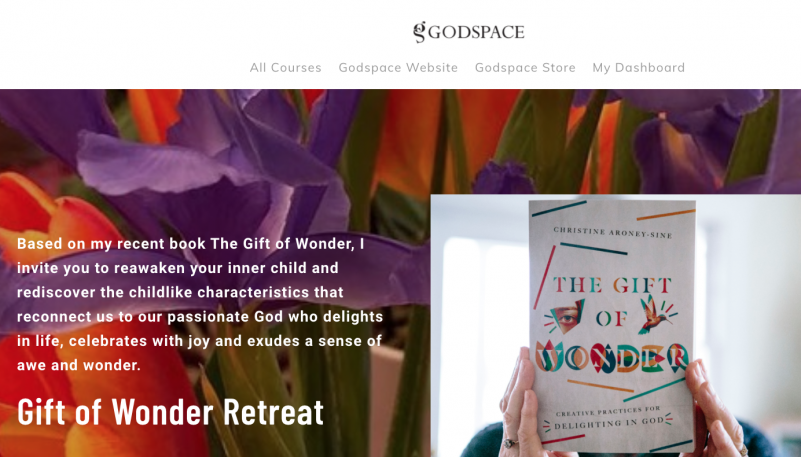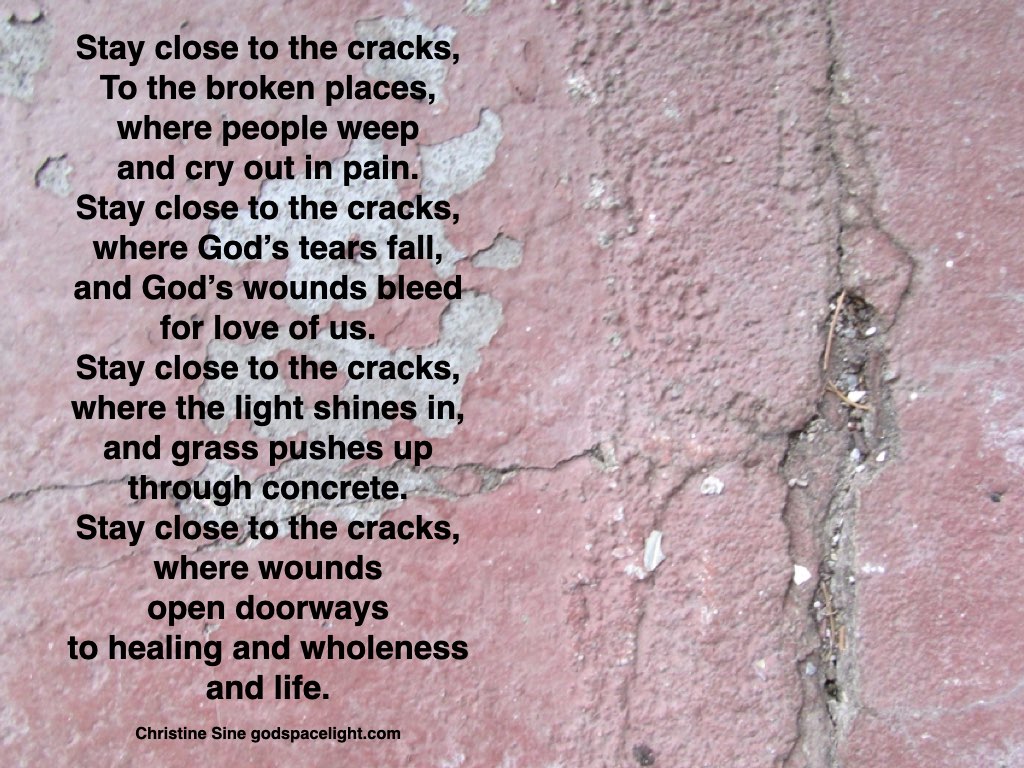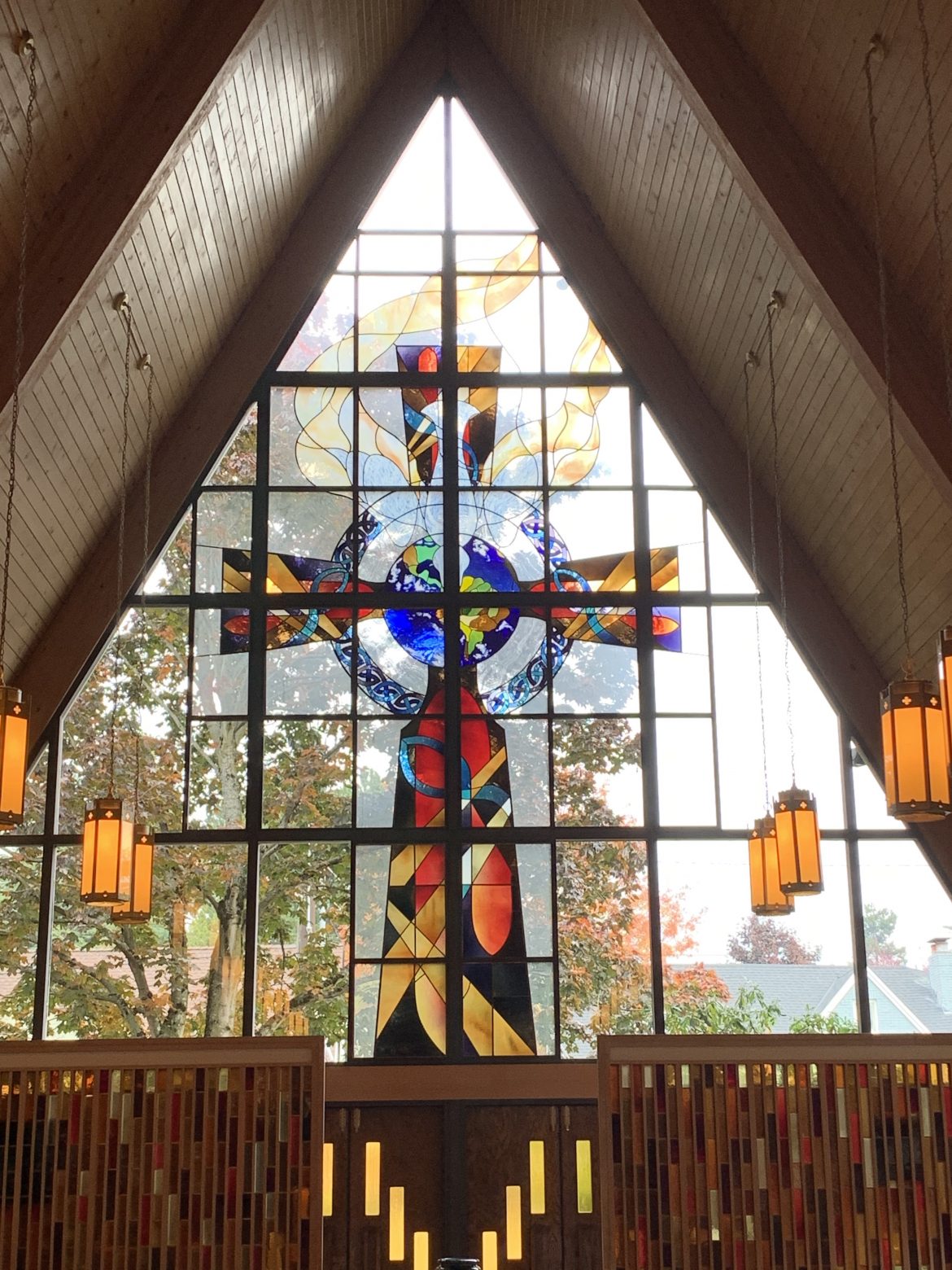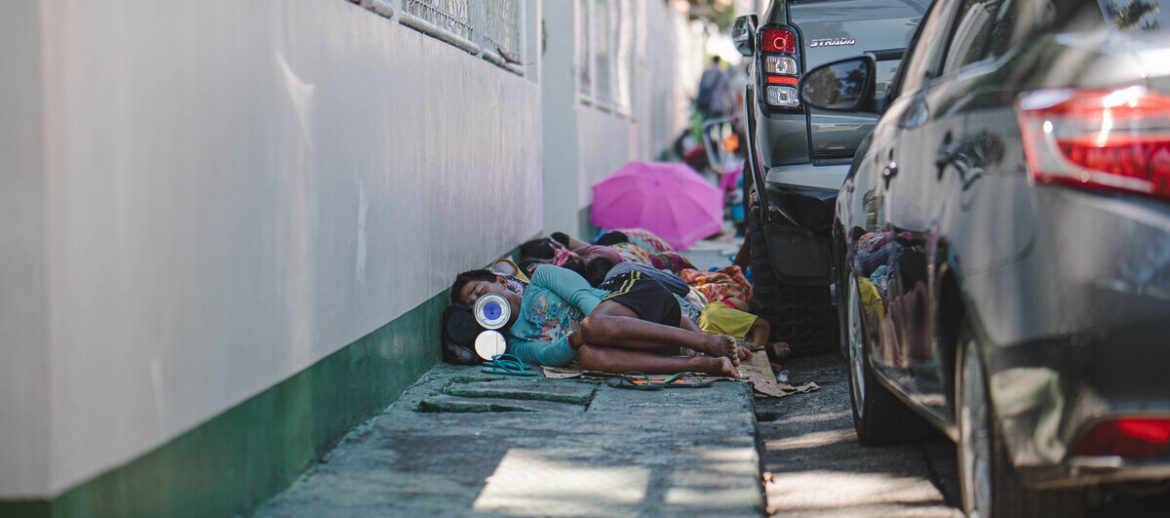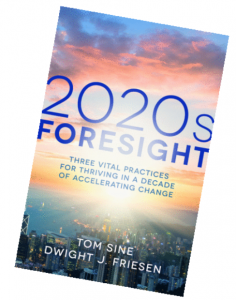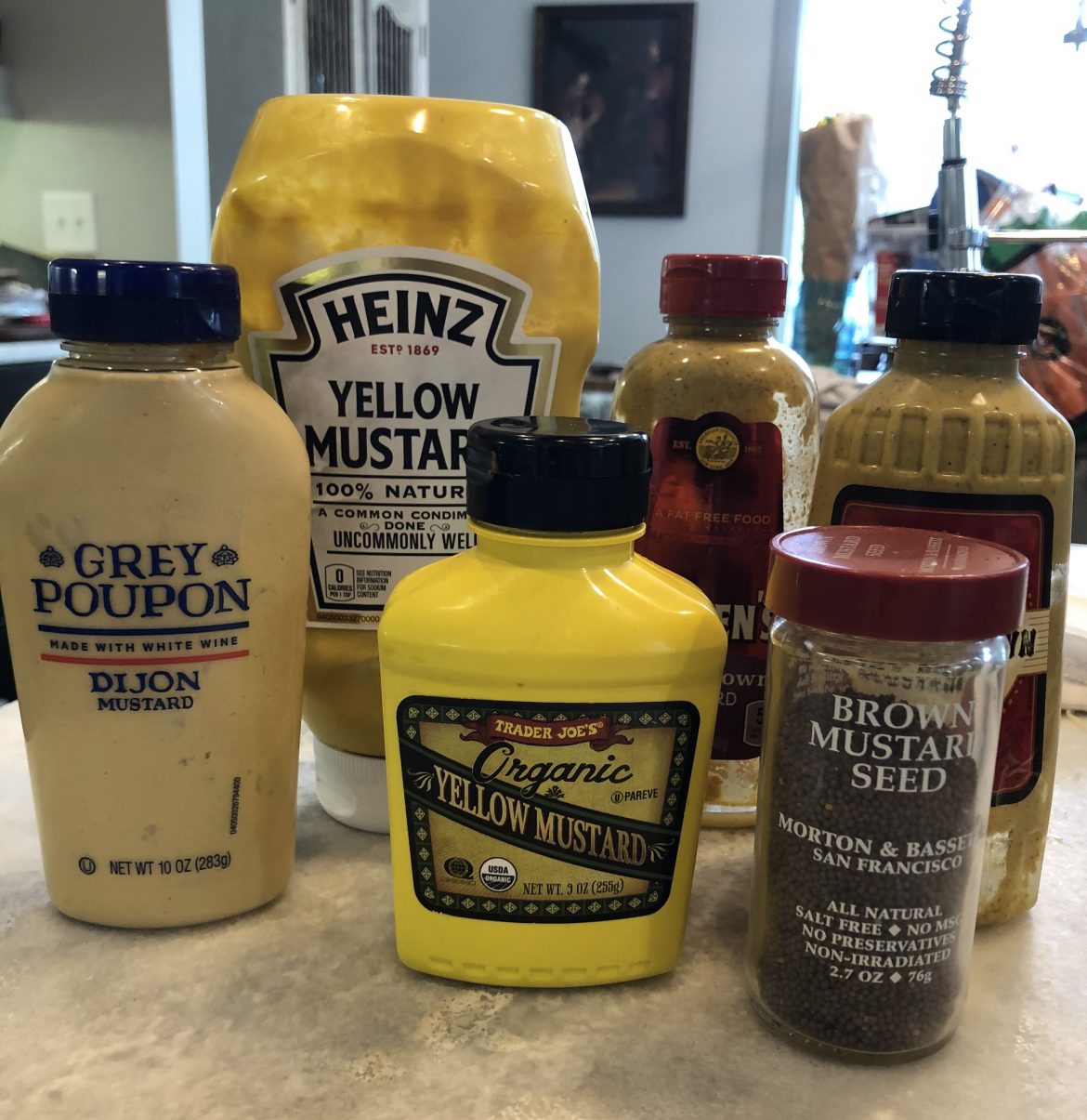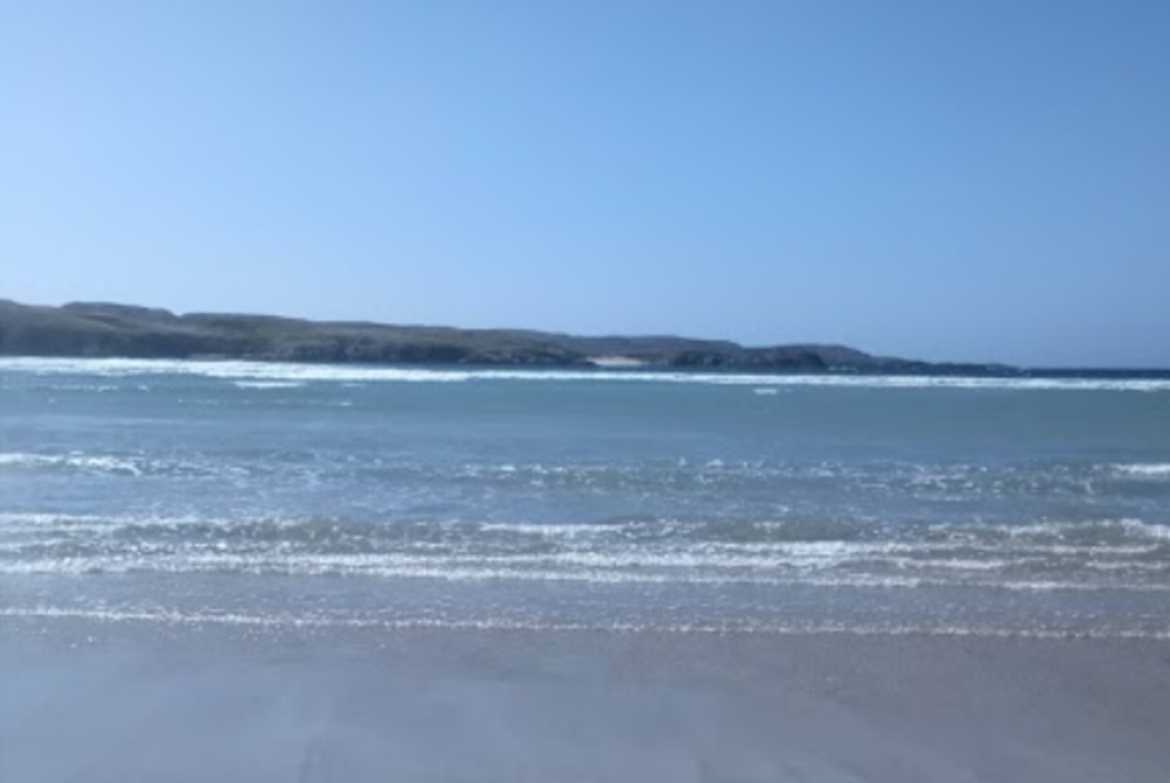This is the final week of the sale on the Gift of Wonder Online Retreat! If you sign up and pay before July 29th, we will email you the details for our next Zoom call which connects you with Christine and other participants to talk about the material. If you are on the fence about purchasing, check out the FREE PREVIEW of lessons in Module 1 before you buy!
What is included?
- 90 days of access to the retreat so you can move at your own pace
- Video lessons and activities facilitated by Christine Sine
- Powerpoint with audio presentations
- Survey questions
- Digital downloads of handouts
- Bonus download material not found anywhere else on Godspace
- Monthly Zoom calls to connect with Christine and other participants
Course Outline
by Christine Sine
Several years ago, I wrote a post Stay Close to the Cracks which was inspired by Leonard Cohen’s song Anthem. Yesterday I was revisiting that post and realized how very pertinent it, and Cohen’s song, are for today. There are so many cracks in our society – cracks in the social fabric that have made us aware of the horrible treatment of our African American friends, not just in the past, but in the present too. Black Lives Matter, we cry out convinced in the depths of our souls that we need to change and that our society needs to change.
Then there are the cracks in our economic and health care systems as we all struggle with the impact of a worldwide pandemic on our lives, and the economic structure of our society. Some have already lost family members, others have lost jobs and homes and still more live in the fear of what could come in the next few months.
Cracks Give Us Hope
We need to let the light shine through, so that we know how to respond without becoming casualties of our fears and all the pressures that are on us. Leonard Cohen’s prophetic voice still challenges us today as he reminds us that there is indeed a crack in everything but this is not a reason for despair but rather for hope because this is indeed how the light gets in. Similarly in Eager to Love, Richard Rohr comments that St Francis of Assisi asked us to stay close to the cracks in the social fabric of our world. It is a thought worth reflecting on.
It is in fact this thought that has encouraged me to look at the cracks in the pavement as I walk, to see what is growing and what has responded to the light – the plants we call weeds, the plants we want to root up and get rid of. We don’t want anything growing in the pavement cracks that will disturb the neat and ordered pattern of our lives. We don’t want pandemics and racism to grow in the cracks. We don’t always want to see the light.
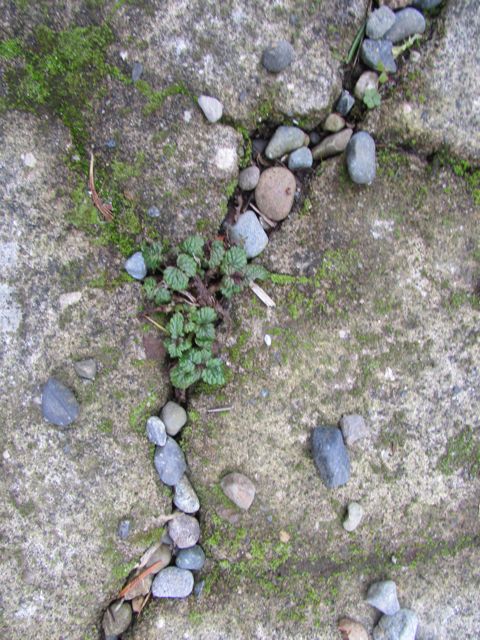
pushing up through the cracks
Everything in our lives and in our world has cracks, wounds and broken places that tell of pain and suffering. Sometimes we try to cover them over, attempting to seal them off from the light. But this only makes them fester and get worse like a boil on our skin that needs to be lanced.
Yet it is in the cracks, the broken places of our lives and world, where violence flares and pain cries out that healing also happens. When we acknowledge injustice and the pain it causes, we take the first step towards wholeness. It is into the cracks that light can shine and water can seep. It is in the cracks in the concrete that seeds can lodge, germinate and take root. And as green shoots reach for the sky, the crack enlarges, the concrete crumbles and what was meant to live and breathe thrives once more.
How Do You Respond to the Cracks?
Sit quietly in the presence of God, allowing the love of the holy and ever present One to wash over you. Read through the prayer above several times. What cracks in your world, what places of woundedness and vulnerability that give you ongoing pain come to mind? In what ways have you tried to cover these over, perhaps with a facade of laughter or with a semblance of respectability? Or as the pandemic still rages, are you responding by pretending it isn’t happening and risking your life and of those around you by not wearing masks or social distancing? Are there ways you respond, perhaps with fear, or anger or intolerance that show these are festering? Perhaps there are things you need to confess or seek forgiveness for. Offer these up to God in prayer.
Now think of the light that has shone into those cracks. Where have you seen glimmers of God’s wholeness? What has it begun to give life to? Are you aware of green shoots emerging towards the sun? How could you nurture their growth and make help them to thrive?
As I walk our neighbourhood, I notice several rain wise gardens on my route. What was once a solid concrete slab in some places has now been transformed into gardens that channel the water into the topsoil and down into the water table where the water can accumulate and provide for future dry periods. Even our church has become rain wise so that the rain from their huge roof no longer creates a flood of water that overflows the drains and clogs the waterways.
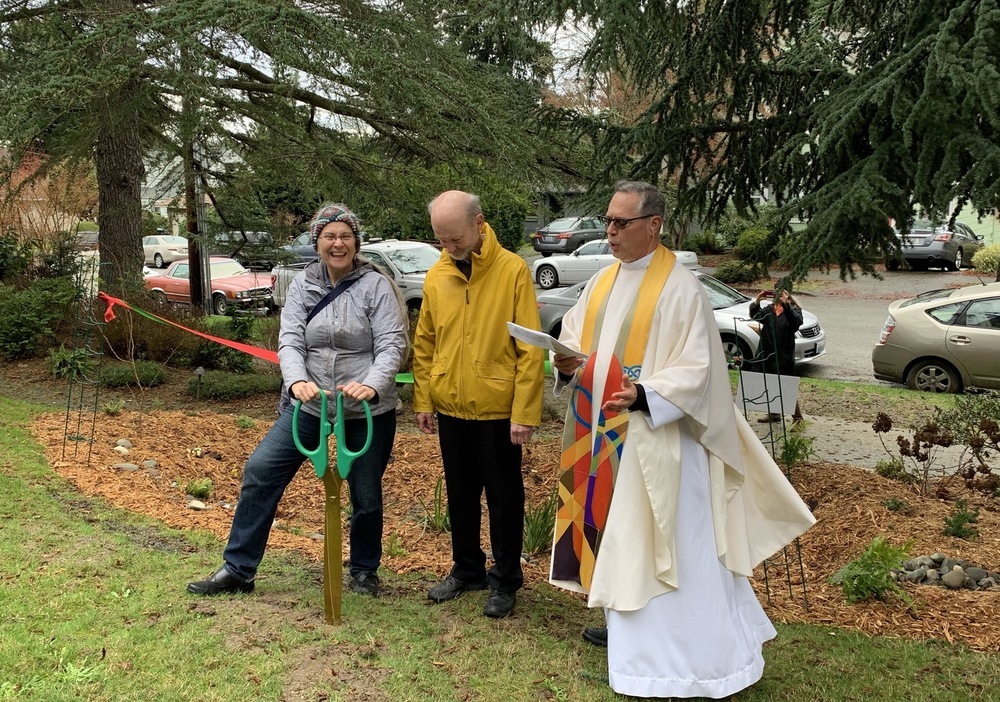
Dedicating St Andrews rain garden
Sometimes when we stay close to the cracks we realize that they need to be nurtured and strengthened to rebuild the fabric of our lives and our society. And as we nurture these it is not only the surface life that thrives but it is the deep wellsprings of the water table that flourishes too.
What is your response?
Read through the prayer above again. What slabs of pavement are you aware of in your life and society that need to be broken up with gardens? Is there something the spirit of God is prompting you to do that could help accomplish this?
Now listen to Leonard Cohen sing Anthem and allow the spirit of God to stir your imagination. Is there another response God is asking of you?
Once more I am posting the Taize style contemplative service from St Andrews Episcopal church in Seattle. This beautiful service is so healing and calming for many of us. Enjoy
A contemplative service for the Eighth Sunday after Pentecost. Carrie Grace Littauer, Prayer Leader, with music by Kester Limner and Andy Myers.
Permission to podcast/stream the music in this service obtained from One License with license #A-710-756 with additional notes below. “‘
Tis a Gift to Be Simple” – traditional words and music from the American Shaker tradition, public domain.
“Nada Te Turbe” – copyright and all rights reserved by GIA/Les Presses de Taizé.
“Shepherd Song” – words adapted from John 10:11-18, music by Kester Limner , Creative Commons copyright–free to use with attribution (CC-BY).
“Kyrie for July 26” – music and text by Kester Limner, Shared under the Creative Commons License, Attribution (CC-BY).
“His Eye is on the Sparrow”- public domain hymn written in 1905 by Civilla D. Martin and Charles H. Gabriel. www.saintandrewsseattle.org
by Tom Sine
A huge wave of evicted families is likely to drive the US into a much deeper recession in the next 6 months as we continue to grapple with the devastating impact of the Corona Pandemic. The Christian Science Monitor predicts “An estimated 11 million or more U.S. households may face eviction in the coming months.”
This is certain to happen unless the Congress extends protection from eviction again. In this time of accelerating change, it is essential that Christian leaders adopt more foresightful and innovative responses to this new crisis.
In 2020s Foresight: Three Vital Practices for Thriving in a Decade of Accelerating Change, Dwight Friesen and I show Christian leaders three essential practices for times like these:
- Learning to anticipate the incoming waves of change before they hammer our lives as well as those in our families and communities… so we have lead time to respond;
- Learning to aggressively research innovative ways to respond to the incoming waves so we can select the most effective responses;
- Select responses that are not only the most innovative but also most fully reflect the way of Jesus.
One of the reasons we wrote the book is because environmental planners and business innovators always anticipate the incoming waves of change before they plan…so they are not surprised by change. However, too often religious leaders don’t take the time to anticipate the increasingly rapid waves of change before we plan. As a consequence, many of us in churches and Christian organizations are surprised by change much more often than we need to be.
Anticipating the Incoming Economic Title Waves of Change Now!
Many of us are already struggling with the impact of the first title waves of economic change that came with the rapid invasion of the Corona Pandemic. Many of us, and our churches, have already been reaching out to family, friends and neighbors in these tough times.
We all need to not only address the needs in our communities today but also learn to anticipate huge waves that are likely to hammer us and our neighbors tomorrow. We also need to research the most innovative ways to respond to new waves of change.
Tidal Wave #1: Moratorium On Housing Evictions Ends in August!
At the height of the pandemic, 42 states…provided a temporary moratorium on evictions but that ends next month and causing millions of families to become homeless. This could also lead to a much more serous recession for the entire country in the immediate future.
Anticipating this new tidal wave of homelessness provides the opportunity for people of faith to start quickly researching innovative ways to respond before this huge wave fully arrives in the next 6 months.
Of course, those with the greatest risk are black and brown families that are already experiencing the highest rates of unemployment. When these families are employed over 40% of their income goes to their housing costs.
Researching Innovative Responses to Coming Housing Crisis
Again while environmental planners and business innovators broadly research a wide range of innovative ways to respond to new challenges, too often Christian leaders settle for the familiar responses. However, here is an example of a Christian leader who researched innovative responses to the growing housing crisis for families at the margins.
Clearly, existing programs to reach out to homeless families won’t be able to meet this crisis. Earl Kooperkamp, the pastor Church of the Good Shepherd in Barre, Vermont, stated that he started researching innovative housing possibilities for homeless families when Corona Virus first hit. “With the pandemic came opportunity.” Their research on new housing options led this church to approach Econolodge and other hotels in their region that were closed down. “The hotel owners were like ‘you want to rent out rooms for awhile? Please.’”
Obviously this is not a permanent solution to this new housing crisis. But it would be a place for Christian leaders to begin proactively researching in their own communities right now… before families are evicted in the coming months. I suspect many colleges who have shifted to online learning would gladly rent dormitory space at a reasonable price as well.
One long term solution, that is already creating permanent family housing in Mexico, is using 3D printing to construct homes at a very modest price. In light of this rapidly coming housing crisis in the United States, I would urge church leaders to:
- Anticipate now how many families in your community are likely to be evicted in the coming months and what agencies are available to help them that you might partner with;
- Broadly research hotels, college dorms and even take a look at 3D printed housing and other low-cost options including intergenerational housing that can result in not only decreased costs but also stronger community networks for time like these;
- Enable this huge wave of suddenly homeless families to find temporary housing in ways that reflects the hospitality of Jesus. Some in your congregation might have extra space in their homes, might even offer some of these families hospitality.
Dwight and I would love to learn how your church responds to his huge incoming wave of a growing housing crisis in your community. We would like to share some of your stories with others.
(By the way, Dwight and I are looking for people to be members our book launch team that will be released by Fortress Press on September 1st. Please email me if you would like to join our launch team.)
2020s Foresight: Three Vital Practices for Thriving in a Decade of Accelerating Change is available on Amazon for pre-order.
Matthew 13:31-35 The Passion Translation
Then Jesus taught them another parable:
“Heaven’s kingdom realm can be compared to the tiny mustard seed that a man takes and plants in his field. 32 Although the smallest of all the seeds, it eventually grows into the greatest of garden plants, becoming a tree for birds to come and build their nests in its branches.”
33 Then he taught them another parable:“Heaven’s kingdom realm can be compared to yeast that a woman takes and blends into three measures of flour and then
waits until all the dough rises.”[c]34 Whenever Jesus addressed the crowds, he always spoke in allegories. He never spoke without using parables. 35 He did
this in order to fulfill the prophecy:
I will speak to you in allegories. I will reveal secrets that have been concealed since before the foundation of the world.
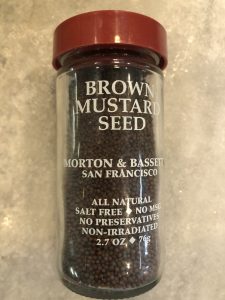
THE KINGDOM OF GOD IS LIKE A MUSTARD SEED.
Jesus describes his Kingdom as a mustard seed that keeps growing until it can hold and have room for all kinds of birds to build their nests and feel welcome in its branches.
The Kingdom grows into a big beautiful tree… from a tiny seed… and all kinds of birds are welcome in it.
The tree of the Mustard Seed is big enough for everyone! Who are the people who are not feeling welcome in the Kingdom or in the Church right now? Pray for those who are feeling excluded from the Kingdom and ask Jesus how you can help make them feel welcome.
What things keep you from planting that mustard seed and believing in the growth of that tree? Talk to Jesus about this.
THE KINGDOM OF GOD IS LIKE MUSTARD
You might not know much about mustard seeds, or you may not have them in your cupboard, but I’ll bet you have some mustard in your fridge waiting for your next sandwich, burger or hotdog. At least in a fridge here in America that’s likely to be true!
Most mustard is made from three kinds of seeds, yellow, black and brown or a mixture of these seeds… so even mustard the condiment reflects the diversity or the kingdom.
And besides representing God’s Kingdom, Jesus says that the mustard seed also reflects the size of our faith.
Luke 17:5-7 New International Version
5 The apostles said to the Lord, “Increase our faith!”
6 He replied, “If you have faith as small as a mustard seed, you can say to this mulberry tree, ‘Be uprooted and planted in the sea,’ and it will obey you.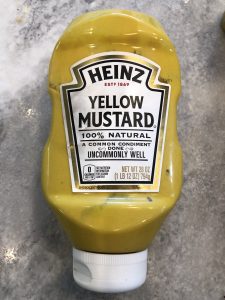
THE KINGDOM OF GOD IS LIKE MUSTARD
Consider Mustard… a condiment that adds flavor to a favorite sandwich.
There are all kinds of mustard… spicy, plain, organic, honey mustard, whole grain mustard, store brand and gourmet. What is your favorite flavor? Taste some mustard this week, (now would be good). Notice its flavor and spice.
What flavor of mustard represents your faith today?
Is your faith like spicy brown mustard with some kick, or is it feeling plain like a store brand? 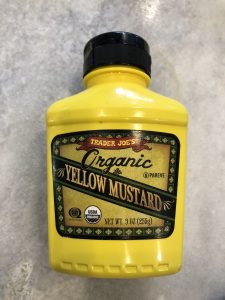
Is your faith feeling organic, or full of preservatives, or vibrant like Grey Poupon? 
Are you coming on strong or feeling too mild? Talk to Jesus about this!
THE KINGDOM OF GOD IS LIKE MUSTARD
It needs spreading around! And that requires us to take action and bring the flavor of Jesus to our world!
What kind of Kingdom flavor would you like to bring to your friends, neighborhood, city or to the world?
One idea is to be plain and easy to understand like yellow mustard, Yellow Mustard is welcome on a weekday sandwich or a backyard bbq burger. It doesn’t try too hard. It’s just there being real. Consider the flavor of the Kingdom you are sharing in the world.
Are you bringing something Organic rather than Traditional? Talk to Jesus about this!
How would you like to spread more of the Kingdom of God to your neighbors and friends even in the middle of a pandemic?
What would this look like?
How are you feeling about the Kingdom of God today? Are you feeling like spreading it around, or are you feeling empty in need of a refill, or even an entirely new bottle of Mustard? Ask the Holy Spirit to fill your and help you share God’s love and hope to your family and friends, neighbors and coworkers. 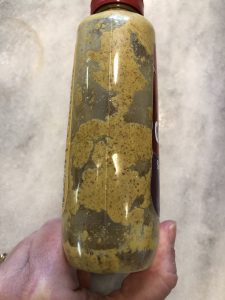
THE KINGDOM OF GOD IS LIKE MUSTARD… adding flavor and being spread around…
What flavor are you bringing to the Kingdom of God?
The Kingdom of God is growing wherever you are, wherever you go. You are bringing the flavor of Jesus, something good, loving, and compassionate. Consider your impact.
As you spread your mustard on your sandwiches or add it to your salad dressing or sauce, ask JESUS how he can help you bring the flavor of the Kingdom this week.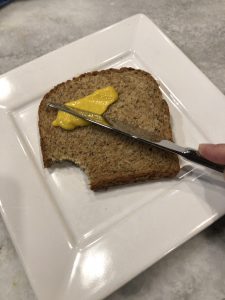
©lillylewin and freeerangeworship.com
by Diane Woodrow – welcome to the Godspace Writers Team!!!
I seem to have got into pondering prophetic words that have been shared over the past few months. And in this blog I am going to look at “RESET”.
Reset is another of those prophetic words that has been banded about since the start of the lockdown. But what does it mean? To me? To you? To society?
I’ve a friend who has done a lot of research into his nation, and for him “resetting” would mean going back to how things were nearly 1000 years ago. That made me think of what that would mean to my country – England and Wales. England is my country of birth but I am very much a Celt at heart and have adopted North Wales as my native land – even if I cannot speak the language! But to me that means looking at a time before 1066, before Norman invasion. And I was happy with that until I read about book about the Viking/Saxon invasions of 550AD and then there are the Romans. So where do I go for my country’s reset?
How about the planet? And global warming? Can we reset our air quality back to before the Industrial Revolution? That’s only 3-4 hundred years ago. Do we really want to go back to how life was then? It would be fine if you were white, male and well-off but not if you were female – death in childbirth no matter what social class, not financially independent, education minimal!! And if you were poor or of an ethnic origin? Well!!!
How about personally? Could we all reset to that time before life messed us up? I know I cannot go back to whatever I was like when I popped out the womb because a lot of who I am now is shaped by the things I have experienced, but the decisions I have made, and also where I find myself now. I cannot, and don’t want to, get rid of my children, my home where I am now, my husband, my friends, the things I do now. I even don’t want to get rid of the things I have learned during lockdown. I want to go forward not back.
After pondering this, then doing a google search and getting a lot of sermons and church sites telling me about restoration and resetting, I went for a long dog walk. It was on this walk by the beach that I realised we have got all this totally wrong. It is not about going back in history or going back personally. I believe it is about resetting to back to the original plan in the original Garden of Eden. Not the actual Garden of Eden because, again like going back in history that isn’t possible. But it is about going back in our minds, hearts, souls. It is about walking naked and vulnerable with our Creator. Not actually no clothes on because well … it is a bit cold where I live to have no clothes on. But it is about not hiding ourselves away from our Creator or from each other. It is about knowing there is some greater being that we haven’t boxed into any type of religion at all, who loves us for who we true are. We may not even know our true selves until we walk with our Creator because we have learned to be good at hiding behind “clothes”; masks, careers, roles, hurts, abuses, addictions, the “that’s just who I am” statement and more. (Add in your own “clothes” that keep you hidden from who you truly are)
I believe “RESET” means resetting back to that place where we can live without fear, no matter what is going on around us, in true relationship with our Creator who loves us just as we are, even when our blemishes are visible, and we can love ourselves fully. And as I have mentioned in other blogs – once we can really love ourselves only then can we really love each other. Totally reset to the original plan!
Originally posted on Aspirational Adventures. Used with permission. Photo by Diane Woodrow, used with permission.
by Sheila Hamil – Guest post
Why not come with us on our morning walk today around the Rising Sun Country Park, by way of a virtual tour on this video.
We usually wake up quite early. There are very few people around then, everything seems so fresh, and there’s more chance of seeing wildlife then. But you know the hardest part of our daily walk is probably taking the first step to get going.
It’s like this when a person is very low in spirit or depressed. The first step back on the road to recovery, is the hardest one too. When you’re depressed you feel like you’re the only one who is, and there’s no way out of the dark tunnel. But the truth is that many people feel, or have felt, this way, I know I have. It takes courage, to take that first step back on the road, and there is a light at the end of that tunnel! Hang in there.
Our song today is another one written and sung by our friend Steve Metcalf, who agreed to share the story behind his song, and how he struggled to find his way back to health and strength again.
Steve writes:
It’s strange reading the words for Say Goodbye To Uncertainty, it reminds me of how close to the edge I was with my mental health at the time. My father passed away in Dec 1997 and Mam was in a nursing home with dementia and at the same time we had a struggling business as the majority of our customers were coal miners and the mines were closing left right and centre. In 1999 we had had enough and decided to close the business and effectively make ourselves redundant. In a nut shell I said goodbye to my dad, I was watching my mother deteriorate, I’d had to put their little dog to sleep, and close the family business. How did I cope? Music and the folk clubs was the answer. Pouring my thoughts and feelings into songs and then listening to the audience singing along to them was the best therapy I think anyone could wish for. ‘Say Goodbye to Uncertainty’ came to me when I got a job, and so the pressure of feeding the family and paying the mortgage was taken away, and as the last verse says “My heads up now and I’m staring at the clouds there’s no one there to get in my way.”
As an Amazon Associate, I receive a small amount for purchases made through appropriate links.
Thank you for supporting Godspace in this way.
When referencing or quoting Godspace Light, please be sure to include the Author (Christine Sine unless otherwise noted), the Title of the article or resource, the Source link where appropriate, and ©Godspacelight.com. Thank you!


